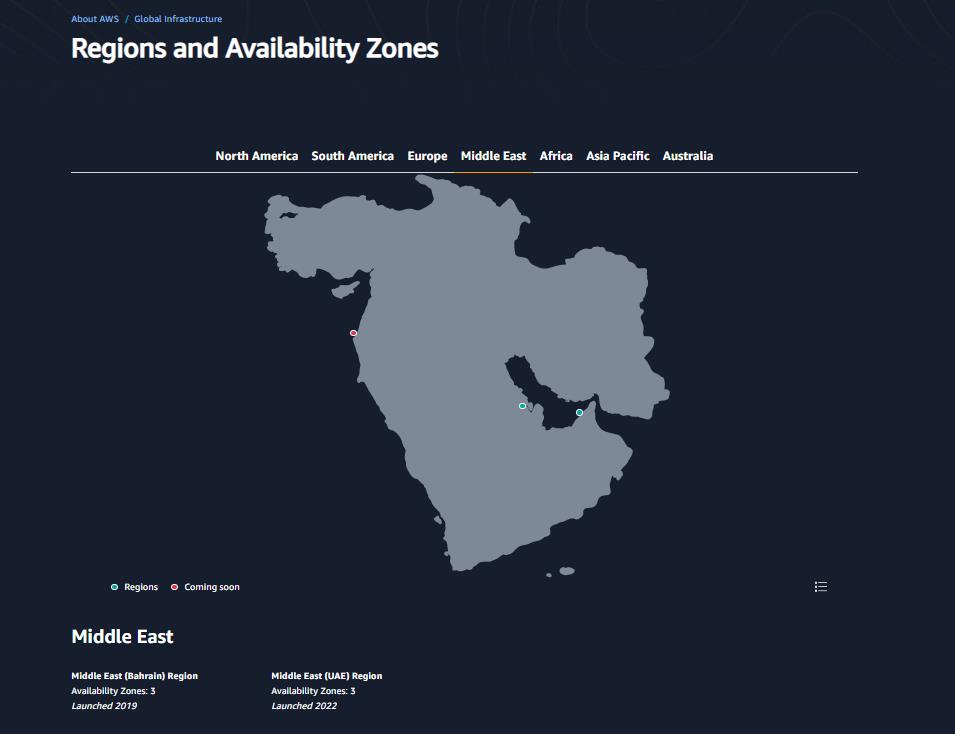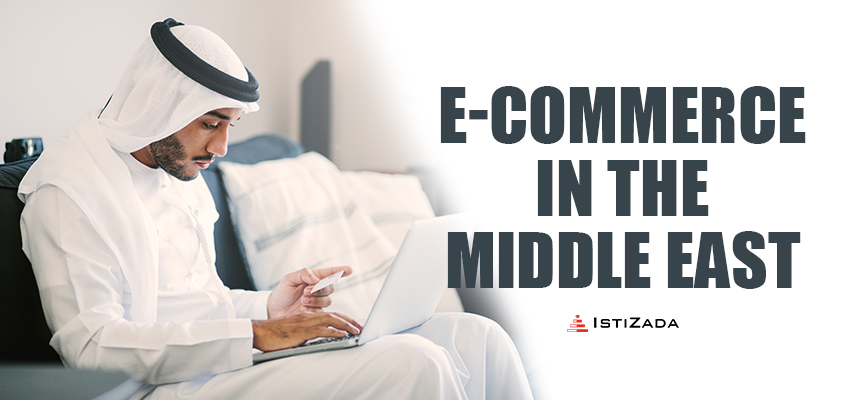The Complete Arabic SEO Guide
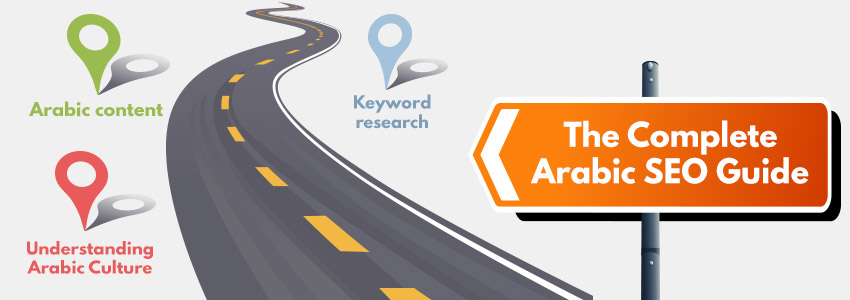
If you’re looking for a comprehensive guide to doing Arabic SEO you’ve come to the right place. With 11 years of experience running Arabic SEO campaigns, Istizada’s insights below should be a great introduction to effective SEO in Arabic. If you need help with your Arabic SEO don’t hesitate to reach out to see how we can help your company improve its marketing strategy in this area.
Opportunities
Google Arabic is one of the most under-exploited marketing opportunities on the web. We say this because we’ve seen valuable industries where only one or two real companies rank on the first page of Google for high-value Arabic keywords in that industry. Regional marketers tend to focus on social media marketing and influencer marketing while at the same time ignoring one of the best ways to get in front of customers who are actively searching for what they offer. In fact, we’ve found the opportunities in Arabic search to be so obvious that 2 times we started our own business in 2 niches we knew little about and found within a short period of time we were dominating the top position across a majority of keywords in those industries.
Understanding Arab culture
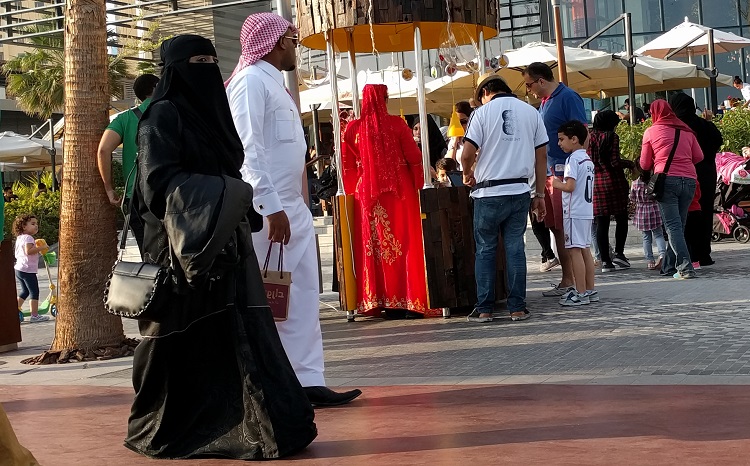
Before starting any marketing campaign in the Arab world, it’s important to understand your target demographic and Arab culture. This is true for Arabic SEO too. This will help you select the right targeting for your campaigns and help you save time and money by focusing your SEO efforts on what is likely to produce a good ROI for you. We recommend checking out these resources before getting started.
Middle East Country Marketing Profiles
Guide to Doing Business in the Middle East
The Middle East Arab Consumer Profile
Arab consumers
Before undertaking any Arabic marketing campaign, it’s important to understand Arab consumers. We created a full guide on this topic here, but below we give some key traits to keep in mind about Arab consumers:
- Arabs are brand conscious
- Buying is a social activity. Recommendations mean everything
- Status and status symbols are important
- Arabs like to window shop, plan to re-market to them
- Fashion and trends are extremely important
- Arabs aim to please others in their community or tribe
- Deals and bargaining are part of doing business
- Arab culture is highly influenced by shame and honor
- Most Arabs are religious, they expect you to honor this
- Arabic is key to reaching a wide demographic in the region
- A majority of Arabs are young, half are less than 25 years old in some gulf countries
Mobile SEO in the Arab World
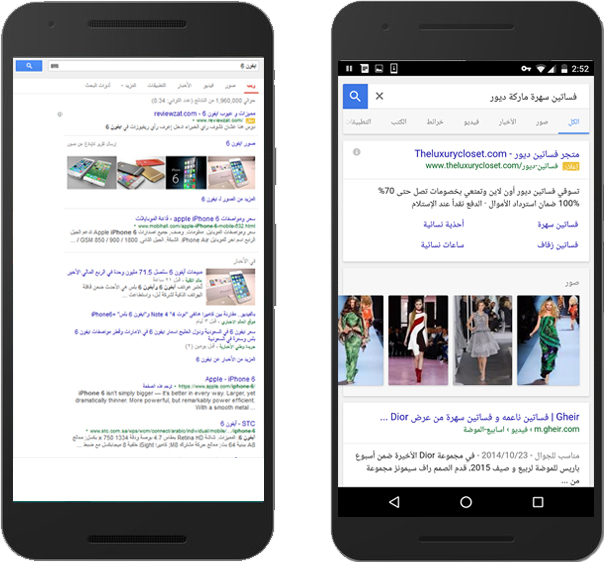
It is essential to understand that somewhere between 90-95% of the traffic that comes from the Arab world is on a mobile device. Many marketers make the mistake of doing most of their work on a website for the desktop audience when in many cases it is less than 5% of their total audience. Focus needs to be on making the Arabic version of the website light, fast loading, and easy to use. It’s important to note that machine translation on a website can break elements on a mobile website in Arabic which can make it hard for a user to convert or make a purchase from their device. Its important translation and CSS styling for Arabic pages be done by a native Arabic speaker.
Key Aspects of Ranking on Google in the Middle East
Think about traffic that converts
Due to the limited competition in many industries in the Arabic language, it can be less difficult to rank for many keywords that have high search volume. Depending on your website’s monetization strategy it might not make sense to target keywords based on search volume alone but to instead target keywords based on the searcher’s intent. Typically, you should start with using keywords that correlate with an intent to take some sort of a conversion action like signing up, buying, submitting an inquiry etc. Once you’ve sufficiently covered these types of keywords then it might make sense to target higher search volume Arabic keywords with less conversion focus in their search intent.
Keyword research in Arabic
Keyword research in Arabic is similar to doing keyword research in English with some limitations and unique implications to understand. Many of the tools for discovering keywords like Google Ads keyword planner or other third party software work to some extent for doing Arabic keyword research but may have some limitations. Below we will discuss some of the unique implications to doing keyword research in Arabic.
Keyword spelling

After more than ten years of experience researching keywords in Arabic one of the most common issues we see is that different acceptable spellings of the same word produce different results. In general, we find that the informal spelling of a keyword often has the highest search volume since Arabic searchers tend to write in a lazy less formal way when searching. The most common time this takes place in an Arabic keyword is when Arabs choose to write a keyword that contains an alef in it. Depending on whether the Arabic speaker writes alef with or without a hamza search results can vary significantly. This minor difference might result in a huge difference in the search results that appear on Google for a given keyword. For a full discussion of how to deal with these differences see our article on Arabic keyword spelling differences.
Dialect and preference difference
Another issue that comes up with Arabic keyword research relates to keyword usage by country. An Egyptian for example will call a car an Arabaya but a Saudi Arabian will call a car a “Syarra”. Many of the keyword research tools and other SEO tools out there won’t suggest the alternate version of a word for another country so many Arabic-speaking digital marketers will unintentionally miss the alternative version of these types of words in their research. We find that working with Arabs who have traveled throughout the region or who have studied other countries in the region helps avoid this issue.
Check out our guide to Google Arabic to get more insight into what makes Google Arabic unique.
Arabic Title Tags and Meta Descriptions
As with SEO in other languages optimized title tags and meta descriptions are essential to ranking well in the Arabic language. Other than making sure your keyword research is done correctly, optimizing your titles and descriptions in Arabic is almost the same as it is in English. Make sure your primary keyword is in the title of the page and try to squeeze in part of a secondary supporting keyword if it can be done without making the title look unnatural. Meta descriptions should contain an Arabic call to action and variations on the primary keyword. Character limits for Arabic titles and meta descriptions are the same as the character limits in English.

Arabic content
By far, Arabic content when executed correctly will drive more traffic than any other ranking factor. Why? As mentioned earlier in this article the competition across many keywords in the Middle East is exceptionally low so just by having Arabic content on your website some of it is likely to rank for longtail keyword search queries. We’ve seen examples of websites ranking across many keywords in an industry in top positions with less than 5 links to the website and a lot of Arabic content. Since many industries have few competitors optimizing for Arabic keywords if you just write a lot of content around topics in that industry you are bound to rank for a lot of things. This is not to say to ignore other ranking factors like link building, site speed, and other on-page optimization factors, these are important too but, much can be accomplished with Arabic content marketing.
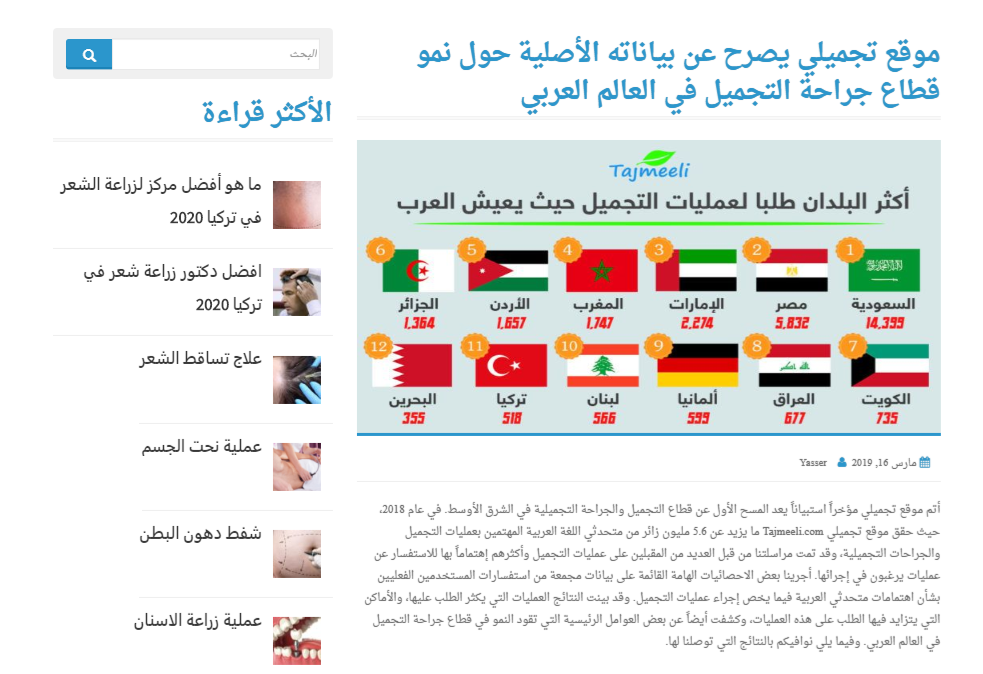
Hreflang tags
Several years ago, Google rolled out tags to help websites identify which pages on the website were for users in different countries and regions. These tags are called Hreflang tags and are important to use if you have different language versions of your website on the same domain. If you are planning to target all Arabic speakers around the world, we recommend you set up hreflang tags as follows:
Rel Alternate for Home Page
<link rel=”alternate” href=”http://example.com” hreflang=”en” />
<link rel=”alternate” href=”http://example.com/ar/ ” hreflang=”ar” />
Each page should have a unique hreflang tag that references the alternate language version of a page.
If you are planning on having different parts of your website target users in different Arab countries with unique pages and messaging for each country a more complex structure is needed but we strongly recommend you speak with an expert on Arabic SEO before doing this because improper implementation can lead to significant traffic losses.
Links
Link building is key to the success of any SEO campaign and Arabic is no exception. Getting regional links from Middle East countries with Arabic anchor texts can be beneficial and worth the effort to attain. That said, far fewer Arabic websites will even consider linking out to other websites these days. Due to a lack of enforcement of copyright laws in the region, many websites will copy content illegally from another website instead of linking to it as a reference. We’ve developed some tactics to help us attract more links from the region despite the challenges.
One mistake companies make when trying to attract links to boost the rankings of the Arabic part of their website is forgetting that the links from other regions and from English websites will still benefit the Arabic part of the website if it is on the same domain as the English part of the website. We’ve seen many examples of websites that achieve top rankings in Arabic with few or no Arabic links just because they had a strong backlink profile in English.
Where to attract regional links
Where to get links for Middle East websites will vary depending on the industry. We’ve found its best to look at the competitors who are ranking in your niche and use a tool like Ahrefs to determine where the Arabic backlinks to their websites are coming from. Usually, these competitors will have some regional links that you can earn too. Given that many websites in the Arab world won’t link out, some tactics won’t work as well as they might in the English-speaking world. That said, we have seen success with digital PR campaigns. We use data journalism about the Arab world to attract large publications to link to the articles we publish in order to cite some fact or statistic we mentioned in the article.
There are also other tactics we’ve seen to be successful. Being a sponsor of a regional event in your industry can also get you a link on the host’s website and may also open opportunities to get links from other companies attending the event. Creating online tools in Arabic, like a calculator or a quiz, can also attract some links if the outreach is done correctly. Most directories in the region are low quality and we would not recommend using them to attract links. In general we strongly advise against paying directly for links as many of the websites that sell links eventually get caught, and that could result in a Google ranking penalty.
Regional Hosting
The availability of great hosting in the Middle East region has been extremely limited so most big websites in the region prefer to host their website in Europe and use a CDN to more quickly load their pages in the region. AWS started increasing its hosting options in the region so we might start seeing more companies host in the Middle East as opposed to Europe.
AWS now offers data center hosting in Manama Bahrain, Dubai UAE, and Fujairah UAE. If you want the fastest speeds for users in Gulf Arab countries, it might be advisable to have your hosting in one of these locations. Note that AWS is consistently growing its global infrastructure, so more data centers could open up soon.
Arabic URLs
Arabic URLs are beneficial in Arabic but there are several things to keep in mind about them.
- No one manually types in an Arabic URL because it’s so easy to make a mistake that will result in a 404 page not found error.
- If using Arabic URLs causes significant issues with your CMS that results in other on-page SEO issues it might not be worth using them
- Slight variations in how an Arabic word is written in a URL can cause a page not to load properly if the word isn’t typed exactly the correct way
- Try to keep Arabic URLs short, in most cases 3 to 5 words maximum
- Arabic URLs may cause issues with tracking for some third-party tools. Many of these issues can be avoided by understanding how Arabic URLs work.
ccTLDs
If a company is planning to have a unique version of their website for specific countries in the region and they have enterprise-level resources it might make sense to purchase separate ccTLDs like .ae .sa .eg for each country in the region. However, in our experience most small to medium size businesses can do better using just their .com website for the entire region.
What about Arabic Domain Names for Arabic SEO
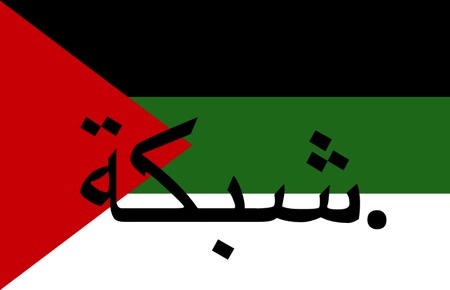
Should you get an Arabic Domain name? In short the answer is still no. Arabic domains are not widely used, they can in some cases cause issues with a website’s SEO and they often have problems when used with third party tracking tools.
For further discussion on this topic see this article.
Optimizing for Google’s knowledge graph in Arabic
Google’s knowledge graph in Arabic exists in a similar way to how it exists in English. Google pulls in certain content that is in a concise format and often displays it in Arabic above other search results as a quick answer to someone’s query. We find that using a combination of rich snippets, lists, and short definitions or summaries in Arabic articles makes on more likely to appear in Google’s knowledge graph results. If you see another website’s content being pulled into the knowledge graph for a search query you want to rank for you can often write something in a similar format to what they wrote (lists or short definitions or summaries) and have a good chance of your website ranking there instead.
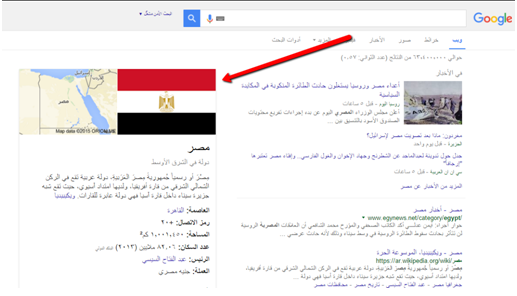
Google Arabic Challenges
Below we will discuss some of the challenges that come with doing SEO in the Middle East that are somewhat unique to the region.
Unnatural Tactics Common
For some reason, the SEO world in the Middle East has attracted a lot of people trying to make a quick dollar without considering the long term implications of how they are doing it. We tend to see a lot of search engine optimization consultants using tactics that go against Google’s webmaster policies. Some of these include purchasing links, automated links, keyword stuffing, and copying content from other websites. These tactics can work in the short term but over the long-term, they can get a website deindexed from Google.
Spammy Content
Another challenge to doing SEO for Arabic speakers is that traditionally much of the content on the web in Arabic was very spammy or low quality. In light of this Arabic searchers have learned to navigate the web in a different way than westerners navigate the web. It is vital to the success of any SEO strategy in the Middle East that your site not appear spammy or utilize other techniques that cause Arab visitors to be turned off to your site.
Tracking Issues – Double-check rankings
One of the issues we face in the region is that many of the rank tracking tools do not give a fully accurate picture of where a website ranks for an Arabic keyword in Middle East countries. We’ve found that tools like AWR Cloud, Ahrefs, Moz, and others often say that a keyword is ranking in such and such position, but we find that a person on the ground in that country sees different results. Whatever tool you are using it’s a good idea to double-check accuracy either by having someone on the ground in that country search or a least use a tool like isearchfrom.com to double-check other tools. It won’t be right 100% of the time but it should give you decent accuracy within one of two positions. If you are looking for a cheap way to get someone on the ground in the country you need to check rankings for we recommend using a service like Upwork or Fiverr to find locals in that country who are willing to do small research tasks like this for a small fee.
Problems with tracking pixels – what to do
One of the common problems marketers run into when trying to track their SEO efforts in Arabic and trying to connect traffic with sales is conversion tracking. If you follow the advice of having Arabic URLs for all your Arabic pages to improve ranking signals one of the things you will run into is many online marketing tools will have an issue with your Arabic URLs. In many cases, the tool will not track Arabic URLs correctly due to the foreign characters. This is not the case with Google Analytics but can be an issue if you try to set up tracking exceptions in Google Tag Manager or other third-party tools.
The quickest way to deal with this issue in our experience, is to use English URLs on your conversion pages like your lead form, shopping cart, and thank you pages. Most of the time, these pages don’t need to be optimized for SEO anyway because they won’t receive much direct traffic from search engines. These are often the pages that you want to add additional tracking to, so it makes sense to have the URL in English. So in short your conversion URL should be something like example.com/thank-you/ instead of at URL that contains Arabic characters.
Making sure to use proper Arabic character sets
One rare issue to note is that some character sets appear to be Arabic but are actually part of a different character set belonging to another language like Farsi or Urdu. If a keyword is written with a character that is not from Arabic but another similar language, it can negatively impact the ability of the page the keyword is used on to rank for that keyword.
Video SEO
We can’t cover video SEO in full detail in this article but you should know that Arabs are some the highest consumers of YouTube content in the world. For many organic search results, videos will be the very first result on the page so if you have the resources to produce Arabic videos, it is likely to produce a good ROI. It is, however, important to note that videos typically have a much lower conversion rate on YouTube than a page on your own website might have. This is because there are so many distractions on a YouTube page and few people click the links in the description below the YouTube video.
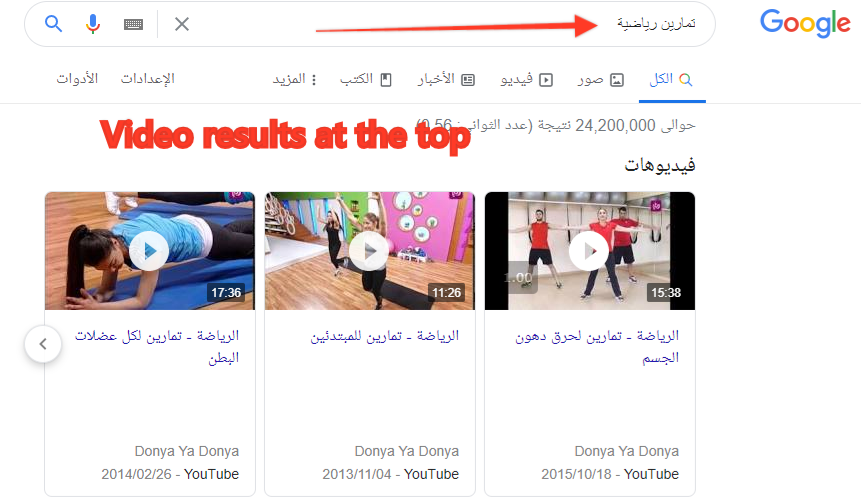
Local SEO in Arab countries
See our guide to Local SEO in the Middle East for more information if you have physical locations in the Middle East and what them to rank in Google Arabic. This is an essential read if you have Google my business listings in Arabic.
Advantages of SEO in Arabic that aren’t an advantage in English
Comparing SEO in the Arab world to SEO in English a few clear advantages can be seen. We will outline some of the advantages below.
Low competition in Arabic
Up until now the competition in Arabic across many industries is extremely low in comparison to English. Things are improving but in some industries, Arabs prefer to search in English because the websites that show up in Arabic don’t appear trustworthy or just because there are far fewer to choose from.
Many websites with an Arabic version are just translated without considering SEO
In our experience, many of the Arabic versions of websites both inside and outside the region are run by companies with no or very few Arabic speakers on the team. Because of this the optimization on the Arabic version of the website is usually just a quick translation not considering SEO.
PPC ads are less competitive so SEO takes more of the page
In most verticals in Arabic, we see fewer PPC ads than we would see in English. This typically means that organic page results occupy more of the page real estate above the fold. This means more traffic for well-optimized websites.
Many with a short-term focus
We’ve seen a trend that a lot of companies doing SEO in Arabic are looking for shortcuts to get rankings that are risky in the long run. Digital marketers who haven’t been through a major Google update will take on their campaigns only to get a website deindexed for violating Google’s policies. We see far few marketers in the region will play the long safe game with white hat SEO in Arabic.
Less savvy digital marketers
Having running Arabic SEO campaigns for more than 8 years now one of our biggest challenges is finding digital marketing staff who have experience. In many cases, we’ve found we have to hire and train talent based on our own process instead of finding someone who already has the skills. Other digital marketers we interview often have outdated or inaccurate training on SEO. As a result of this, we see that in general there are far fewer savvy digital marketers who speak Arabic as a percent of the population than there are in the English-speaking world.
How SEO differs for different types of websites in the region
Ecommerce
Ranking for ecommerce keywords in Arabic is much easier due to limited competition in the region. The challenges tend to be on the logistics side since there are cross-boarder transactions, shipping, and customs to deal with. Marketing is the easier part.
Lead Generation
Lead generation websites can perform very well in Arabic and you can usually find keywords that drive traffic and leads that you can rank for in most industries with a small investment. Keep in mind Arabs will most likely be on mobile devices so forms should be optimized for mobile and right to left languages.
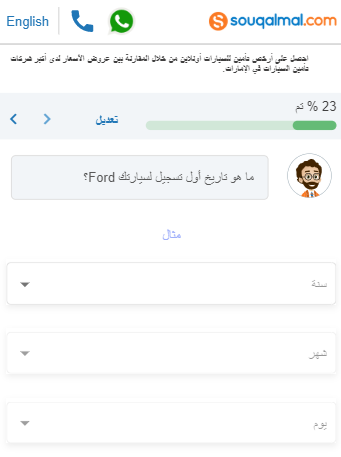
News and media sites
Content websites of all kinds can do well in Arabic due to a general shortage of Arabic content online. However, if the website is monetized with ads targeting the right keywords is essential because a lot of traffic in Middle East has a very low CPM payout. Its vital to pick keywords that are more likely to attract the right demographic of Arabs with high CPM and CPC payouts.
Arabic SEO vs Arabic PPC
Many of our clients run both Arabic SEO campaigns and Arabic PPC campaigns in the region, but what are the advantages of SEO over PPC in this language.
Advantages
Given that competition across many Arabic keywords is often very limited, SEO tends to have a very good ROI when the right keywords are selected. We’ve seen many cases where a website is optimized and then left alone for 4 years or more and continues to rank in top positions in their industry. This means making an upfront small investment that continues to pay dividends for years.
Many Arabs treat ads with skepticism and trust organic results more so they are both more likely to click and organic result and more likely to convert to a customer when going through an organic listing on Google
Since there is a large percent of the population in the Middle East that are lower middle class or even poor, ads can attract a lot of unqualified clicks from Arabs with no intent to buy. If however, you invest in getting your website to rank in Google organically in Arabic you will still get unqualified traffic to your website but you won’t pay for each unqualified click to your website.
Disadvantages
Arabic PPC ads can start getting you traffic and sales right away whereas SEO takes months to see results if you are starting from nothing.
Arabic PPC also tends to be much more trackable and can give you a really good idea about which keywords lead to sales. Arabic SEO is less trackable and its often harder to measure exactly which keywords lead to conversions.
Regions of the Arab world to consider for your SEO Efforts
The Gulf
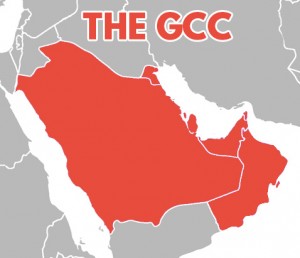
The gulf is the wealthiest region in the Middle East due to its oil production over the past decades. Gulf Arabs are active online and are comfortable making purchases from ecommerce stores around the globe. 80% or more of our clients come to us looking to market in the Gulf because of the wealth there and their previous experience with this region. Whether you are selling apparel, beauty products, electronics, or something else it can do well in the Gulf and there are likely unexploited SEO opportunities.
The Levant (The Sham)
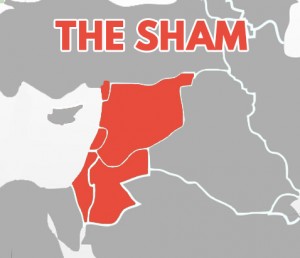
The Levant region is made up of Lebanon, Jordan, Palestine, Syria, and Iraq. This region has undergone some difficult times over the past decades due to war and migration, but this also sets it up for huge growth over the coming period. Much of the talent in the region comes from Lebanon and Jordan due to good education systems in each country. Iraq, Syria, and Palestine are likely to see rapid frontier growth as they build and rebuild infrastructure throughout their countries. If you are planning to sell high end products and services in these markets its important to remember that each country has a wealthy upper class.
North Africa
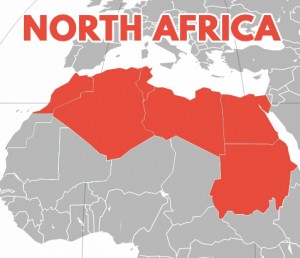
North Africa is the most populous Arabic-speaking part of the MENA region. Egypt has a population of more than 100 million, making it the largest country in the region. North Africa’s GDP per capita is less than both the GCC and the Levant but the huge population of the region still makes it a lucrative region to target with your SEO efforts. If you have affordable products that can appeal to the masses this could be a great region to target but even if your products are targeted at the wealthy there are still millions in the upper class across the region to focus your marketing at. It’s important to note that the dialect differences across the region are the most pronounced when compared with the other Middle East regions. Algeria and Morocco’s spoken Arabic is unintelligible to most Egyptians for example. The use of French in addition to Arabic in your marketing will make sense in both Algeria and Morocco.
Marketing to high net worth Arabs – you aren’t alone

If you are planning to market to high net worth Arabs through your SEO efforts in the region you aren’t alone. We find that about 85% of the clients that come to us want to target HNW Arabs in Gulf countries. In fact a story we hear over and over again goes something like this: “We’ve been getting a few orders from Gulf countries with very high average order values and we’d like to explore how we can get more customers like this.” If that sounds familiar, don’t be discouraged it’s typically a good sign that HNW Arabs are likely to be interested in buying more from you.
Our Recommended Country Order to Focus On
Depending on what your company sells, what countries you choose to focus on first can differ. That said we find that most companies looking to expand into the region are seeking customers and clients with more discretionary income. If this is the case we recommend targeting your Middle East SEO campaigns in Arabic at the following 6 countries in order of priority.
After this you can think about expanding your efforts in the Levant and North African countries.
